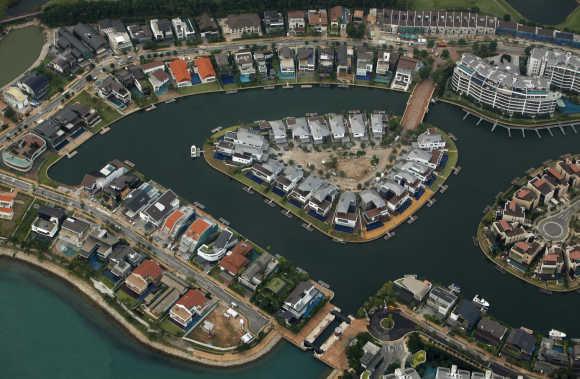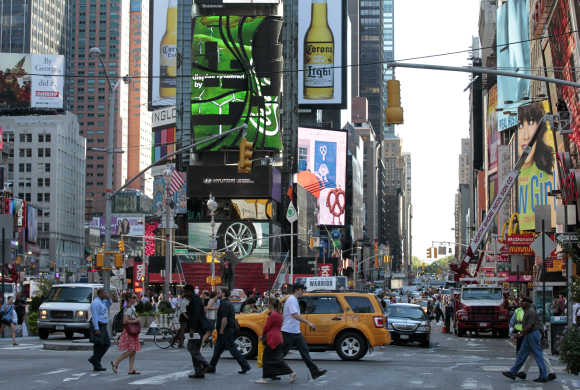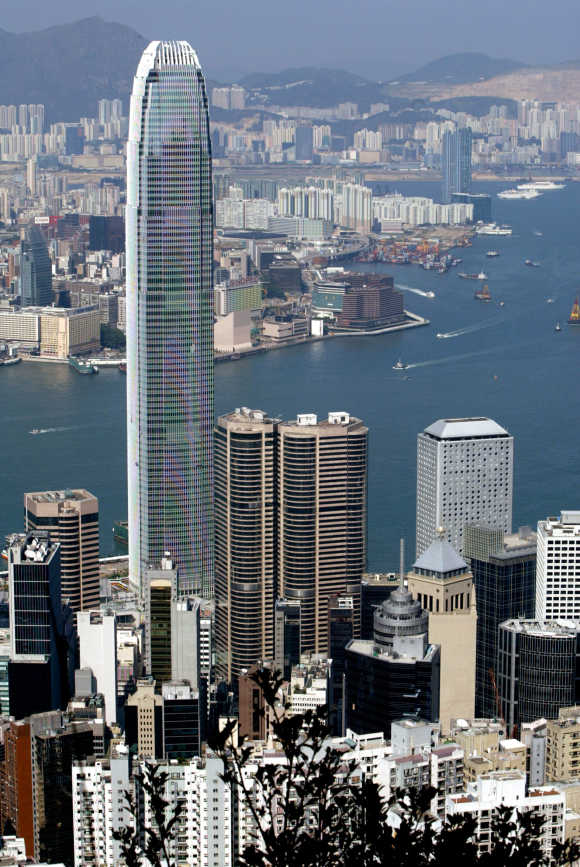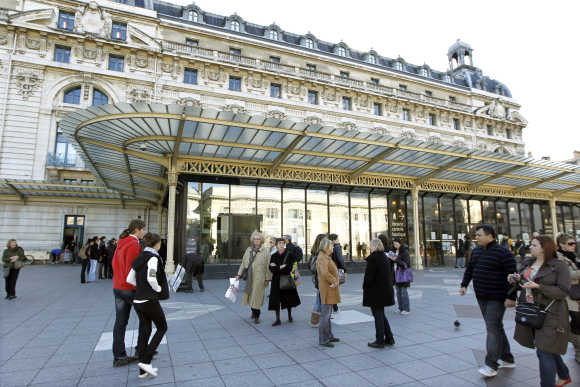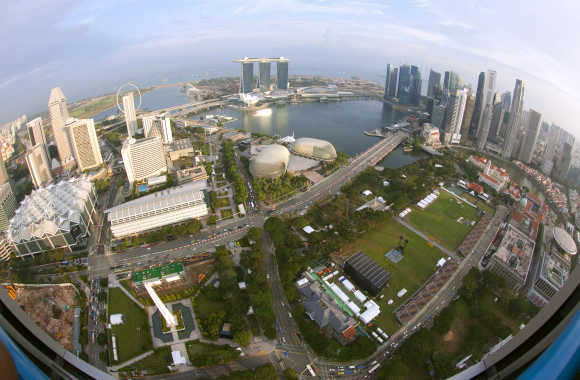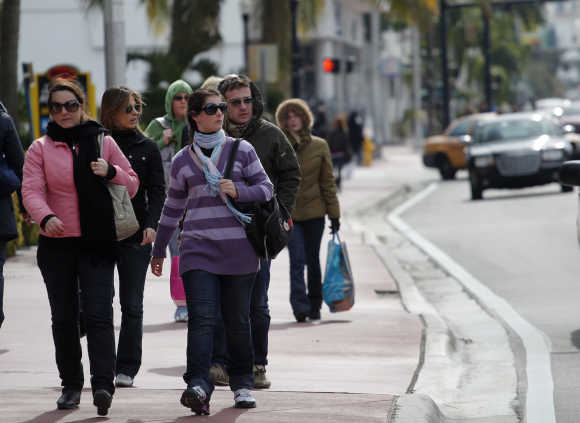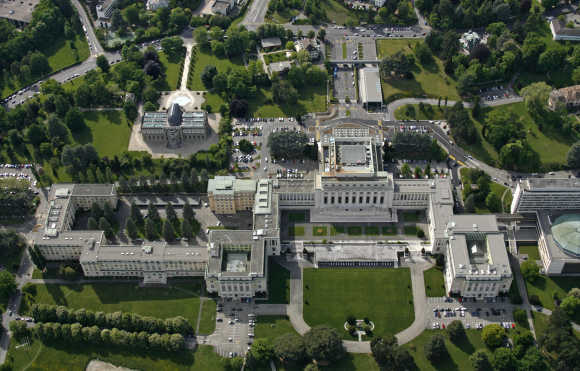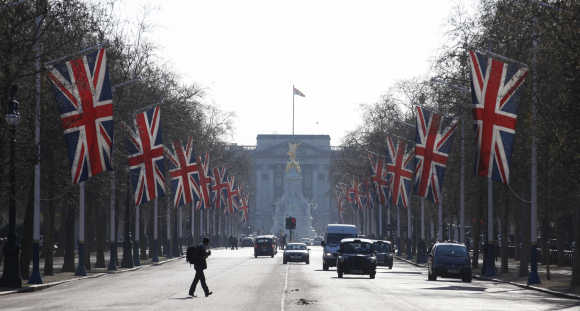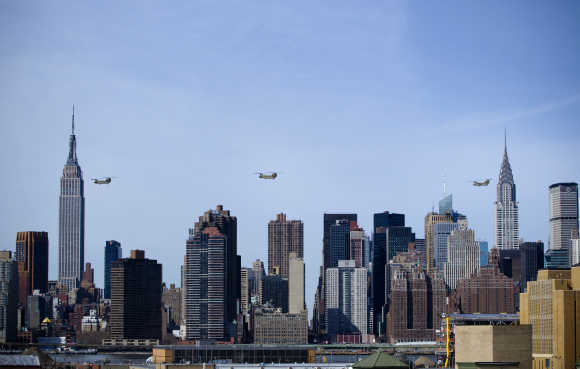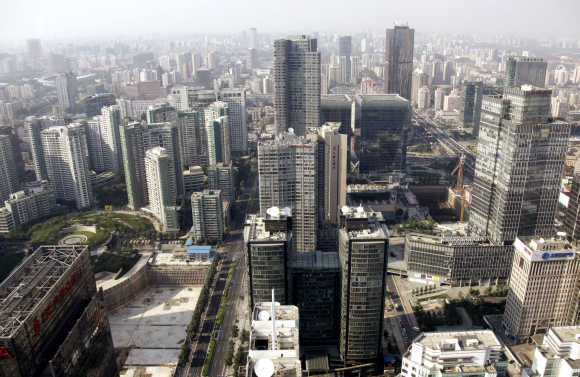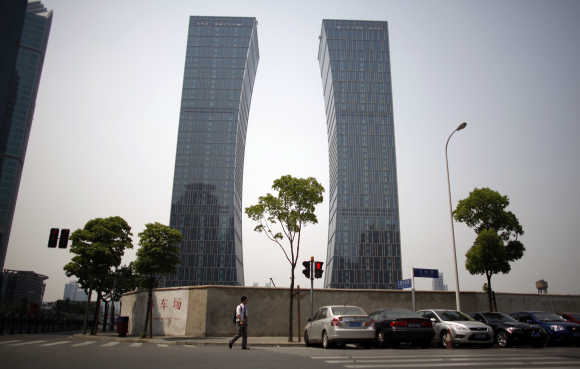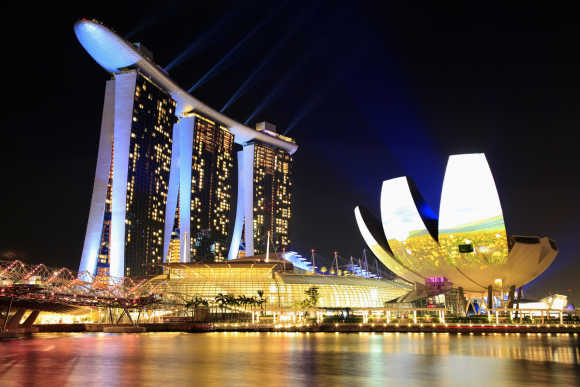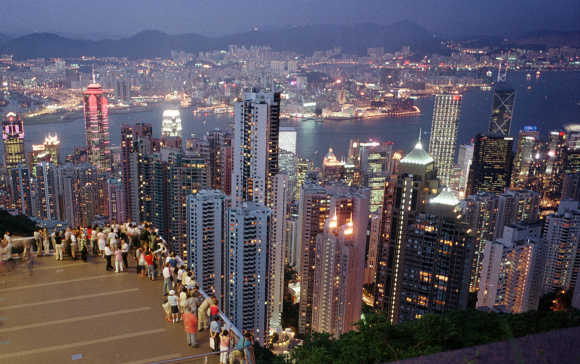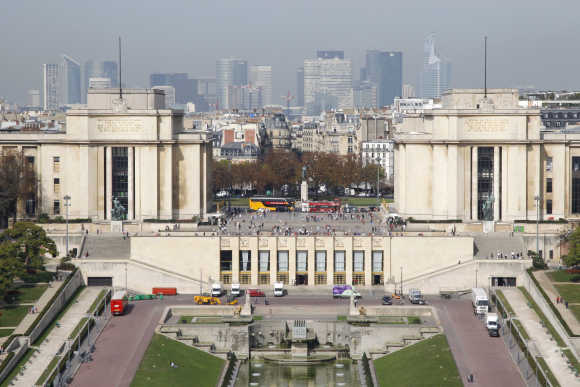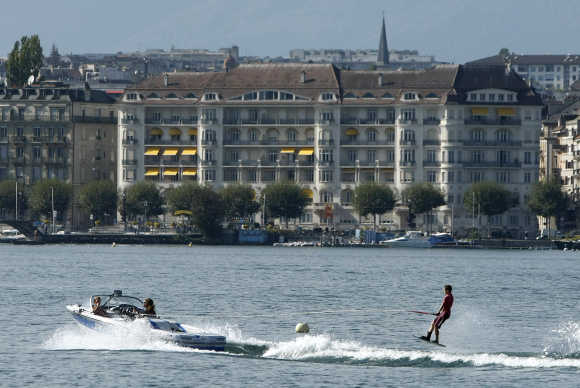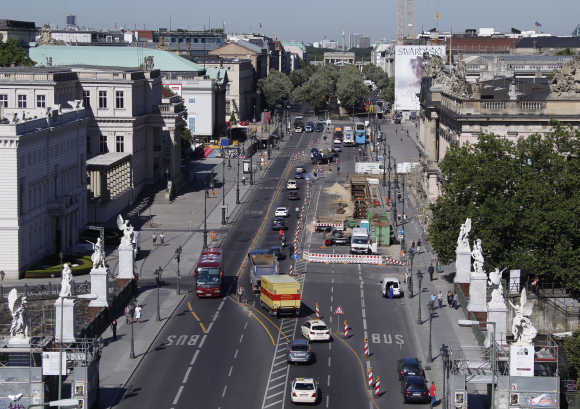 | « Back to article | Print this article |
These cities have the most ultra-rich people
Economic turbulence failed to curb the rise in the number of ultra-wealthy individuals last year, according to exclusive new figures produced for The Wealth Report.
There are now 63,000 people worldwide with $100 million or more in assets, according to Ledbury Research, which specialises in monitoring global wealth trends.
The number of these centa-millionaires has increased by 29 per cent since 2006 and is forecast to rise even further.
Click NEXT to read more...
These cities have the most ultra-rich people
London
Global rank: 1
The global economy expanded, but the pace of growth was much slower than in 2010. The US economy grew by just 1.8 per cent and GDP in the troubled eurozone rose just 1.6 per cent.
Click NEXT to read more...
These cities have the most ultra-rich people
New York City
Global rank: 2
In contrast, Asia managed to chalk up economic growth of 7.9 per cent, although even this was down on the 9.5 per cent achieved 12 months earlier.
Click NEXT to read more...
These cities have the most ultra-rich people
Hong Kong
Global rank: 3
The London School of Economics professor Danny Quah forecasts that by 2050 the world's economic centre of gravity, a theoretical measure of the focal point of global economic activity based on GDP, will have shifted eastwards to lie somewhere between China and India
Click NEXT to read more...
These cities have the most ultra-rich people
Paris
Global rank: 4
Global HNWI data also indicates a shifting emphasis to the East. There are now 18,000 centa-millionaires in the region covering South-East Asia, China and Japan.
Click NEXT to read more...
These cities have the most ultra-rich people
Singapore
Global rank: 5
This is more than North America, which has 17,000, and Western Europe with 14,000.
Click NEXT to read more...
These cities have the most ultra-rich people
Miami
Global rank: 6
By 2016, Ledbury Research expects that this region will have extended its lead, with 26,000 centamillionaires, compared with 21,000 in North America and 15,000 in Western Europe.
Click NEXT to read more...
These cities have the most ultra-rich people
Geneva
Global rank: 7
On a country-by-country basis, the US will still dominate in 2016, with 17,100 centa-millionaires, but China will be catching up fast with numbers set to double from current levels to 14,000.
Click NEXT to read more...
These cities have the most ultra-rich people
Shanghai
Global rank: 8
"We believe the number and concentration of centamillionaires accentuates the trajectory of current global wealth flows," says James Lawson, Director at Ledbury Research.
Click NEXT to read more...
These cities have the most ultra-rich people
Beijing
Global rank: 9
"Trends seen in this wealth bracket are likely to be replicated in lower wealth tiers in years to come," he said.
Click NEXT to read more...
These cities have the most ultra-rich people
Berlin
Global rank: 10
South-East Asian deca-millionaires (those with $10 million or more in assets) already outnumber those in Europe, and are expected to overtake those in the US in the coming decade.
Click NEXT to see which cities will be the most important in 10 years...
These cities have the most ultra-rich people
London
Global rank: 1
These forecasts are influenced by the expected economic performance of countries in the Asia-Pacific region. While rapid GDP growth does not in itself guarantee a sharp rise in HNWIs, rapidly growing economies do provide key opportunities for large-scale wealth creation.
Click NEXT to read more...
These cities have the most ultra-rich people
New York City
Global rank: 2
The IMF predicts emerging economies will expand by 5.4 per cent this year and 5.9 per cent next year. While this certainly marks a signifi cant downgrade from previous forecasts, it still outpaces the average GDP growth of 1.2 per cent and 1.9 per cent expected this year and next in advanced economies.
Click NEXT to read more...
These cities have the most ultra-rich people
Beijing
Global rank: 3
Citi forecasts that the North American and Western European share of world real GDP will fall from 41 per cent in 2010 to just 18 per cent in 2050.
Click NEXT to read more...
These cities have the most ultra-rich people
Shanghai
Global rank: 4
Developing Asia's share is expected to rise from 27 per cent to 49 per cent in 2050. China will overtake the US to become the world's largest economy by 2020, which in turn will be overtaken by India in 2050.
Click NEXT to read more...
These cities have the most ultra-rich people
Singapore
Global rank: 5
Citi research shows that while China and India are likely to grow rapidly over the next 40 years, there are other key countries with promising chances for growth that do not necessarily match the traditional assumptions about where future growth will emanate from.
Click NEXT to read more...
These cities have the most ultra-rich people
Hong Kong
Global rank: 6
For example, Russia and Brazil, which make up the so-called BRIC nations alongside China and India, do not make it on to Citi's list of Global Growth Generators - or '3G' countries. Instead, Citi includes countries such as Bangladesh, Egypt, Indonesia, Iraq, Mongolia, Nigeria, Philippines, Sri Lanka and Vietnam on this list.
Click NEXT to read more...
These cities have the most ultra-rich people
Paris
Global rank: 7
Mexico, Turkey, Thailand and Iran are also mentioned as countries to watch, as is Brazil, although Citi says major fi scal or political adjustments would have to take place before they would be eligible to join the 3G list.
Click NEXT to read more...
These cities have the most ultra-rich people
Sao Paulo
Global rank: 8
While these countries can expect rapid economic growth, much of the wealth already held in developed economies will be maintained, according to Citi.
Click NEXT to read more...
These cities have the most ultra-rich people
Geneva
Global rank: 9
In terms of continued wealth creation, the world's high net-worth individuals remain upbeat. Less than a quarter are pessimistic about their future wealth prospects.
Click NEXT to read more...
These cities have the most ultra-rich people
Berlin
Global rank: 10
When asked what makes a global city, the top-scoring indicators were personal safety and security, economic openness and social stability.
